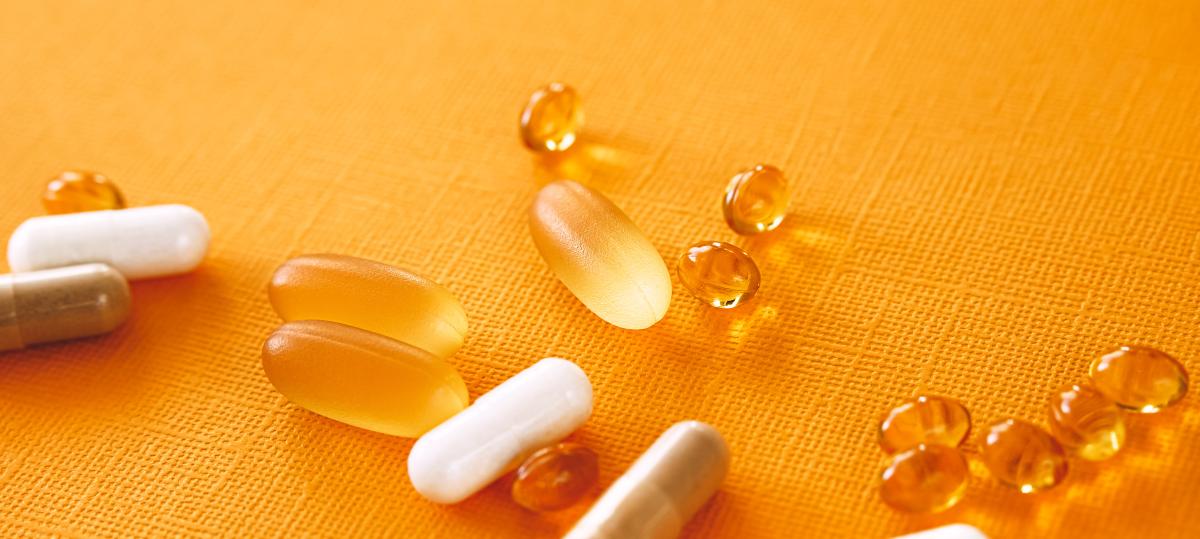Vitamin D: tablets or drops

Vitamin D is a vital hormone that the body can form itself-however, it needs UVB radiation and as much uncovered skin as possible. In our latitudes, the sun’s rays are not sufficient, especially in winter, To produce enough vitamin D. But even in summer, many people do not achieve optimal values - for example, if they rarely stay outdoors or consistently Use sun protection. In these cases, the body can no longer produce the hormone itself. Who his Vitamin D mirrorl wants to support specifically, finds a variety of Dietary supplements. But what is better: drops or tablets?
Vitamin D: The effect briefly summarized
Vitamin D is important for bone metabolism. According to the German Nutrition Society (DGE), it regulates the calcium and phosphate household in the body and thus contributes to the stability of the bones. Vitamin D also supports the preservation of healthy teeth and muscles.
There are a variety of vitamin D preparations in stores. In order to prevent misleading health promises, the European Food Safety Authority (EFSA) determines which statements about ingredients are allowed – the so -called « Health Claims ». According to the Society for Applied Vitamin Research, these Health Claims apply to vitamin D:
- Li): Relative List-None (&> Li): PL- (1.2EM) (&> Li): Marker: Text- (0) (&> Li): Relative (&> Li): Before: Absolute (&> Li): Before: W-3 (&> Li): Before: H-3 (&> Li): Before: BG fire (&> LI): Before: LEFT-0 (&> Li): Before: Top- (8px) (&> Li): Before: Rounded-Full My-5 « >
- Vitamin D contributes to a normal recording and recycling of calcium and phosphorus.
- Vitamin D contributes to a normal calcium level in the blood.
- Vitamin D contributes to the preservation of normal bones, teeth and muscle function.
- Vitamin D supports a normal function of the immune system.
- Vitamin D plays a role in cell division.
In her guide « nutrient therapy-the practical guide », nephrologist and metabolic expert Helena Orfanos-Boeckel also lists the following processes for which vitamin D is important:
- Li): Relative List-None (&> Li): PL- (1.2EM) (&> Li): Marker: Text- (0) (&> Li): Relative (&> Li): Before: Absolute (&> Li): Before: W-3 (&> Li): Before: H-3 (&> Li): Before: BG fire (&> LI): Before: LEFT-0 (&> Li): Before: Top- (8px) (&> Li): Before: Rounded-Full My-5 « >
- Gene expression (they determine which genes are switched on or off)
- Skin protection
- Cancer protection
- psyche
- Control of body functions by hormones
Vitamin D: tablets or drops – what is better?
Vitamin D is one of the fat -soluble vitamins – So the body can only absorb if some fat is added at the same time. Therefore, it is often recommended to take vitamin D together with a fatty meal.
Are drops automatically better? Not necessarily. Because vitamin D drops are available in oil-based and water-based shape. Oil -based drops usually contain the necessary carrier oil – the absorption is therefore also possible without additional fat supply. Nevertheless, according to the package insert, manufacturers recommend taking both vitamin D drops and tablets for meals in order to optimize the recording.
For children, many midwives recommend drops instead of tablets because they are easier to administer. But the professional association of pediatricians e. V. (BVKJ) advises tablet form in infants. The reason: Dosage errors can occur faster in the case of drops – that Risk of overdose rises. Tablets provide an accurate, standardized dose and are therefore considered more reliable for rachititisprophylaxis in infancy.
In her guide, Orfanos-Boeckel writes: « It doesn’t matter for the inner effect of vitamin D whether you take drops, capsules or tablets ». Only the individual daily or weekly dosage is important to keep healthy blood values. The doctor advises against changing the product frequently. Instead, she recommends staying with a preparation that you can tolerate and like. In order to determine the personal maintenance dose, the 25-oh vitamin D mirror should be checked every 3 to 6 months under ongoing therapy. The aim is to achieve a value of around 60 ng/ml and a D-ratio of 0.5. In their experience, too, the drops occur more often than with tablets or capsules.
Also Studies Show that vitamin D drops and tablets are generally equivalent-both can reliably increase the vitamin D level. However, differences may be shown in certain diseases: in an examination on the University of Cambridge People with depression were observed. It turned out that some of them improved after they were switched to drops by vitamin D tablets.







